
There are so many health benefits to juicing fresh fruits, vegetables, grasses & herbs regularly.
They provide us a mega-dose of phytochemicals, antioxidants, living enzymes, vitamins and minerals in every glass; helping protect us from a myriad of diseases, reducing inflammation, boosting the immune system and much much more. A daily glass of juice goes a long way to improving our overall health.
Here we list a whopping 101 health benefits of drinking fresh juice.
Index:
This is a fundamental benefit of juicing.
Many of us have less than perfect digestion systems due to imperfect eating habits and other factors. This impairs our ability to digest, absorb and assimilate the nutrition in the food we eat.
This is where fresh juice shines - it helps "pre-digest" some of this nutrition and provides it in concentrated amounts resulting in a massive influx of antioxidants, vitamins and minerals into the body and cells.
It's not always easy to get our daily recommended portion of fruits & veggies.
Juice comes to the rescue and can actually provide our total recommended amount of fruits & veggies in one glass.
It is important to note that juice should not replace eating whole fruits and veggies on an ongoing basis, but is an awesome addition to a healthy eating plan.
Each vegetable contains its own unique blend of phytochemicals and most vegetables have phytochemicals that are not found in any other vegetables. An antioxidant called gingerol is only found in ginger for example.
One great health benefit of juicing is that it is easy to consume a greater variety of vegetables. It is not unusual to put 5 or more different veggies in one juice.
The classic V8 juice contains 8 awesome veggies and a wonderful mix of phytochemicals.
And of course, fresh-made juice is a hundred times better than pre-packed juice.
Enzymes are found in all fruits & veggies but are destroyed by heat and other types of processing.
Consuming fresh-made fruit and/or vegetable juice ensures that living enzymes are a part of the juice's overall nutrition. These enzymes help with digestion.
Detoxification and juicing are almost synonymous.
Juice fasting is a common method of detoxifying our cells of unwanted products such as heavy metals. Fasting or not, juices load our bodies with anti-oxidants that help our bodies (especially the liver) clear toxins out of our system.
The antioxidants in fruits and veggies have been shown to help with inflammation and arthritis - including osteoarthritis.
The main issue is that the average American does not get enough fruits and veggies and juice is one way to remedy this. We do have to be careful with juice however, excessive sugar actually has inflammatory effects.
Fruit juice, while antioxidant loaded, is also sugary. To get the most potent anti-inflammatory benefits of juice it's best to focus mostly on vegetable juice and specifically green juice.
Aim for 80% vegetable juice and 20% fruit juice, a little bit of fruit helps sweeten otherwise sour-tasting green vegetable juice.
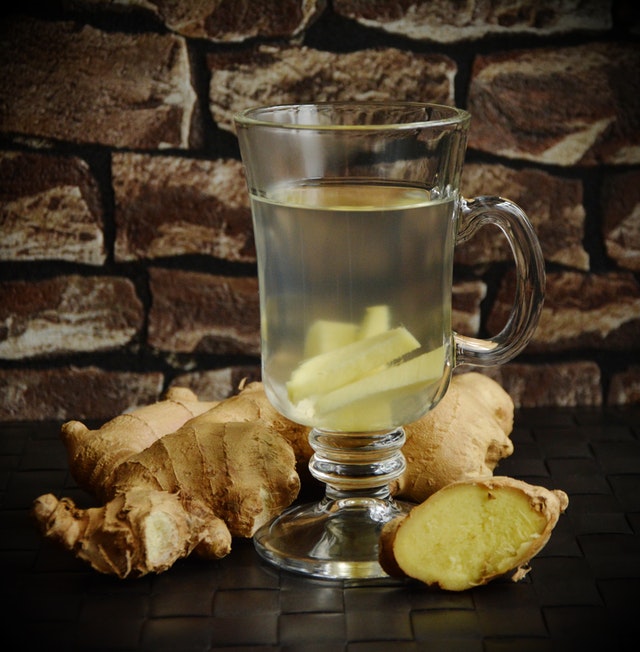
In a study conducted by Gemma Walton Ph.D., diets rich in prebiotic fiber found in certain vegetables increased healthy gut bacteria by 133 million. Check out this list of vegetables that contain the most prebiotic fiber.
The majority of us don't consume the recommended amounts of fruits and veggies each day - 3+ cups of veggies, 2-3 cups of fruits. Drinking juice helps us reach this goal.
A 12 oz glass of juice provides about 2-3 pounds of plant nutrients. Many of these nutrients (called phytonutrients) possess potent anticancer properties.
We want our bodies to be loaded with these compounds, protecting our tissues and cells from potential mutations that can lead to cancer.
The phrase "prevention is better than cure" holds a lot of merit. And what we do and don't consume is a key part of this "prevention".
Avoiding processed foods and focusing on wholesome foods like fruits and vegetables is an important part of helping protect us from some diseases.
Juices are loaded with phytochemicals that have potent anti-cancer and anti-inflammatory benefits.
Phytonutrients, also referred to as phytochemicals, are chemical created within plants. They utilize these chemicals for their own protection and health.
Some of these chemicals protect plants from insects while others protect them from UV radiation. These phytonutrients are not just great for the plants - ample evidence shows that diets rich in phytonutrients are very beneficial to human health too.
Cultural habits where lots of phytonutrient-rich foods are consumed are strongly correlated to longevity.
The awesome thing about freshly made juices is that they are loaded with phytonutrients, the concentration of the juice (due to the shedding of the insoluble fiber of whole foods) provides a greater uptake than eating the whole foods themselves.
You wouldn't eat 5 carrots for example, but a 5 carrot juice is a normal serving.
Diets rich in vegetables such as beets have been shown to have a major impact on body function during exercise. As a result, beet juice has become a very popular ergogenic athletic supplement.
Beet juice is a rich source of nitrate, a chemical that occurs naturally in certain foods and is converted to nitric oxide in the body.
Nitric oxide increases blood flow, improves lung function and strengthens muscle contractions. The result is improved athletic endurance and performance.
Read our in-depth article about the health benefits of beet juice.
One beautiful thing that juicing provides us is an awesome amount of variety. With juicing we are more likely to drink a greater variety of fruits and vegetables than we would when eating them.
In addition, we drink them in greater quantities than we would eat, thus gaining considerably more antioxidants, phytochemicals, vitamins, minerals and living enzymes.
Every fruit and vegetable contains different types of phytochemicals that you are not going to get in the others. All this adds up to synergy - the synergistic health effects of getting all the nutrition you need from your diet and even more.
Mix it up and drink juices regularly and you are providing a health tonic that supplements cannot compare with. Enjoy!
A common theme among people that start consuming fresh juice daily is that they feel their energy levels improve.
Simply getting more of the vitamins and minerals we need daily in a real food format like juice goes a long way to improving our overall well-being and boosting energy levels.
Another common health benefit of juicing that people experience is better sleep.
So how come a juice can give us a ticket to zzzzz land? It is believed that juices provide us with some nutrition that may help us sleep, including vitamin C, vitamin E, serotonin, calcium and folate.

Studies including beet juice and blueberry juice have shown to improve focus in some people.
Blueberries have been shown not just to help reduce the risk of Alzheimer's but to improve memory and concentration for up to 5 hours.
Beet juice with its high nitrate content helps deliver more oxygen to the brain and thus improves focus.
The fountain of youth may well be a fountain full of fresh juice!
Getting plenty of antioxidants into our diet every day from fresh-made juice is a great way to help protect our cells (including skin cells) from oxidative damage. This is the key way in which juicing provides anti-aging benefits.
Just focus on variety so that you get a plethora of the 1000s of different phytochemicals offered by fruits and vegetables.
It's not always easy to drink enough water each day.
It can also be boring to drink a lot of water!
A couple of glasses of fresh juice each day will help us stay hydrated in addition to all the nutritional goodness.
Some people do really well using a juice fast for weight loss.
Check out Joe Cross who is the most well-known proponent of using juices for weight loss. He lost weight and changed his health for the better, using juice and has helped many other people do the same.
Health starts in the gut, a common statement in popular health movements because it's completely true.
The human gut has ten times more bacteria than all the other cells in the human body combined. This bacteria is essential for normal and healthy gastrointestinal function, it regulates metabolism, protects us from infections and actually makes up 75% of our immunity.
This is a little tongue-in-cheek but you can actually turn your skin a healthy color of orange if you consume enough carrot juice. This is true.
Carrot juice is a major source of beta-carotene, the plant pigment and antioxidant that gives carrots their orange color.
If we drink enough carrot juice this pigment will start to build up in our skin cells to the point that we will start to look more orange. This is not harmful but actually provides potent anti-cancer benefits and strong protection of skin cells from free-radical damage.
Simply getting a massive dose of overall nutrition from daily juices is going to improve the overall functioning of our body and its many systems.
However, there are some antioxidants that we can get from juice in high levels that are key players in immunity, and these are vitamins C & E and beta-carotene. They are all-important in chemical processes in the body that strengthen the immune system.
Almost every fruit is a great source of vitamin C. Carrots are an awesome source of beta-carotene and spinach provides vitamin E.

Cholesterol is an important factor in a well-functioning body, but too much of it can potentially bring about cardiac health issues.
Juicing veggies that contain lots of beta carotene and sterols, such as carrots, spinach, cantaloupe melons, peaches and broccoli may help maintain healthy blood cholesterol levels.
Juicing may just be a way to reduce the dose of cholesterol medication a person needs if combined with other healthy lifestyle choices. Of course, always consult your doctor before making any medication changes.
First things first, it's important to point out that fruit juice is a bit sugary and should be used in small doses only.
Much better to focus on vegetable juices, especially green juices which are very low in sugar and very high in antioxidants.
Green vegetables are the stars of the juicing world. One study by the British Diabetic Association revealed that gingerols -- antioxidants found in ginger -- can increase the uptake of glucose into the muscles without even needing to use insulin.
In studies, turmeric, bitter melon, grapefruit, pears, berries, apples and leafy greens have all been shown to help with balancing blood sugar in some way or another.
Having an overly acidic body is a common issue as a result of a diet containing too many acidic foods - meat, seafood, junk food, processed food, grains and not enough alkalizing foods such as vegetables.
An acidic body environment is considerably more prone to disease, a petri dish if you will where disease can grow. Acidity is also equal to inflammation.
A glass of vegetable juice every day is one of the best ways to balance your pH levels and reduce acidity.
All veggies are alkaline, so take your pick! Note though that green leafy vegetables are the most alkaline of the vegetables, generally speaking.
Diets richer in potassium and lower in sodium can help improve mood.
Make a juice with any of the following fruits and veggies and you will be delivering your body with a super dose of potassium: oranges, cantaloupe, honeydew, apricots, grapefruit, cucumbers and leafy greens.
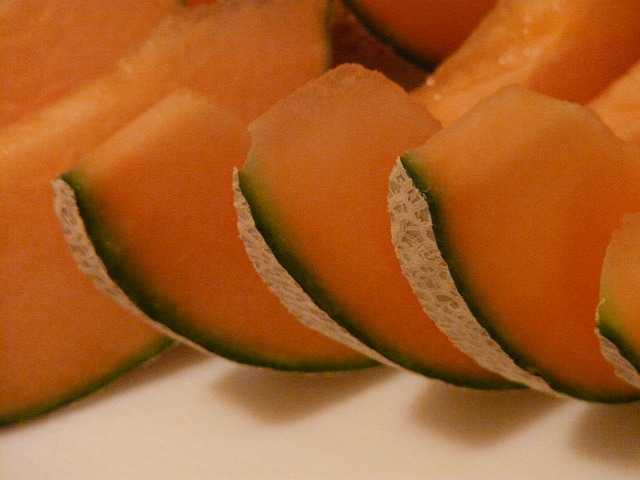
Dark green leafy vegetables are a rich source of vitamin E & K and folate. One study shows that those who consume lots of leafy greens had brains that were 11 years younger than those who did not.
So loading up on the green leafy juices is a big help in keeping the brain in great shape. Seriously though - 11 years is a lot!
Carrots are synonymous with eye health. This is simply because carrots contain high doses of beta-carotene, an antioxidant that is turned into vitamin A in the body.
Vitamin A is crucial to eye health. Vitamin A deficiency is a leading cause of blindness and can lead to macular degeneration and cataracts.
There are multi health benefits to juicing asparagus but one excellent such benefit is its ability to help reduce arthritis pain.
Asparagus contains an amino acid called asparagine that can dissolve oxalic and uric acids. Two acids are known contributors to arthritis pain.
Read our in-depth article about asparagus juice benefits and for 5 awesome asparagus juice recipes.
The famous benefit of consuming beet juice is its athletic promoting abilities.
Beet juice is extremely high in nitrate, which is converted in the body to nitric acid. Nitric oxide increases blood flow in the body, improves lung function and strengthens muscle contractions. This combo is a major boost to athletic performance and cardio-respiratory endurance.
Read our in-depth article about beet juice benefits.
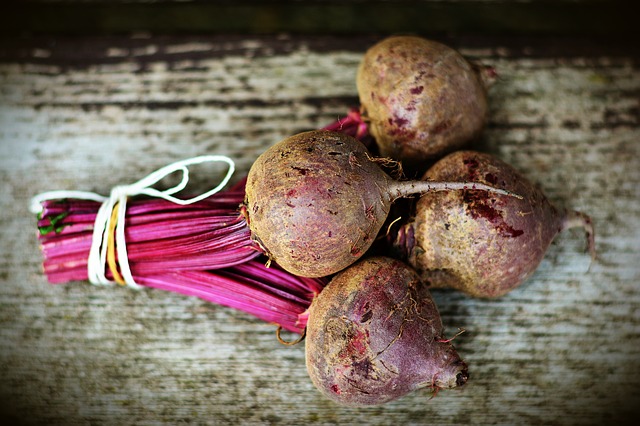
Bok juice provides great benefits for the skin because it is rich in the nutrients that the skin needs for maximum health: carotenoids, vitamins C & K, folate, selenium and potassium.
A daily juice of bok choy can lead to skin joy.
Read our in-depth article about the benefits of drinking Bok choy juice.
Broccoli is a great source of Vitamin K with 185mg of vitamin K in a 3/4 cup serving.
Vitamin K is essential for proper blood clotting in the body to help recover from cuts, bruises and wounds.
Read our in-depth article about the health benefits of broccoli juice.
Let's outright say that Brussel sprout juice is not the most delicious tasting juice available to us. Yes, it's not so tasty! It is however massively beneficial to health.
It is an excellent source of vitamins C & K, two vitamins that are crucial to fighting off infections.
To make Brussel sprout juice palatable, add something a little sweet to the mixture. Carrot or apple juice are both sweet and can make any green vegetable tolerable in a juice, plus they will just add to the infection-fighting qualities of Brussel sprouts.
Read our in-depth article about the health benefits of juicing Brussels sprouts.
One study has shown that consuming raw cabbage juice can help heal peptic ulcers. 13 participants with upper digestive tract ulcers and stomach ulcers were given 946 ml of fresh cabbage juice daily. On average, the participants' ulcers healed in just 7-10 days of this treatment.
This is one of several studies on the health benefits of drinking fresh cabbage juice, all showing the potent ulcer healing benefits of cabbage juice.
Read our in-depth article about the health benefits of juicing green cabbage.
Red cabbage juice is an excellent source of potassium. A half-cup serving of this juice provides 649 milligrams of potassium.
Potassium is one of several electrolytes in the body that are essential to hydration as well as proper muscle functioning. Compare this to about 422mg of potassium in an average size banana.
Read more about the health benefits of juicing red cabbage.
Carrots are the classic food associated with eye health because of their very high levels of beta-carotene. Beta-carotene is a precursor to vitamin A, a vitamin essential to eye health. Vitamin A deficiency can lead to blindness, cataracts and macular degeneration.
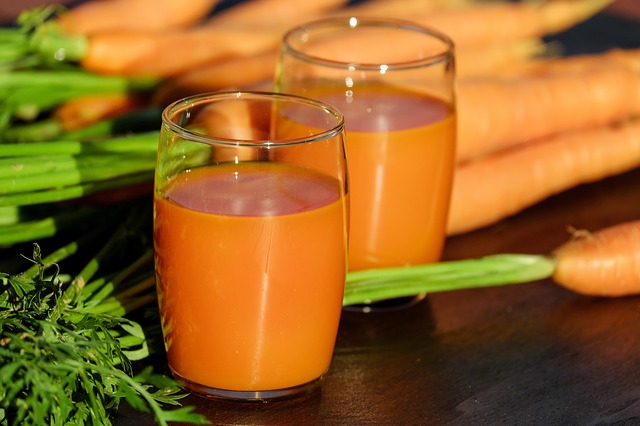
Chard contains phytochemicals called anthocyanins.
Studies conducted with animals show that precancerous lesions are reduced significantly after consuming swiss chard extract daily. We can get a super dose of anthocyanins by turning chard into juice.
For more detailed information visit our article health benefits of drinking Swiss chard juice.
Cauliflower juice is an excellent source of boron. Boron increases the absorption of magnesium and calcium into the body.
Magnesium and calcium are both minerals that are important for bone health and preventing bone diseases such as osteoporosis.
Celeriac juice contains a plethora of antioxidants help us prevent disease and greatly boost immunity. These antioxidant phytochemicals include falcarinol, falcarindiol, panaxadiol, and methyl-falcarindiol.
Celery contains phytochemicals called phthalides. These phthalides are shown to relax artery walls and thus create a better flow of blood around the body. This helps lower blood pressure naturally.
Celery juice offers a variety of health benefits, but we had to pick one and lower blood pressure is one of celery's most famous benefits.
Collard greens juice is a powerful detoxifier, has high levels of antioxidants and reduces inflammation - making this potent vegetable juice a natural cancer preventer and fighter.
The National Cancer Institute states that the cancer-killing abilities of collard greens are their rich content of glucosinolates - a group of sulfur-containing compounds. These glucosinolates can reduce inflammation, prevent tumor metastasis and formation, reprogram cancer cells to die and deactivate carcinogens.
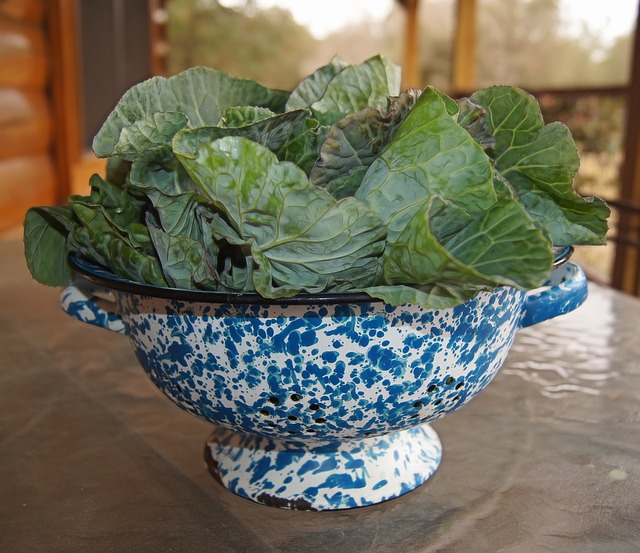
Dr. Sood states that "Cucumber juice is light on the bowel, acts like a natural laxative and can be a remedy for chronic constipation".
Mix that cucumber juice with some prune juice and you may be hitting that bathroom like a champion.
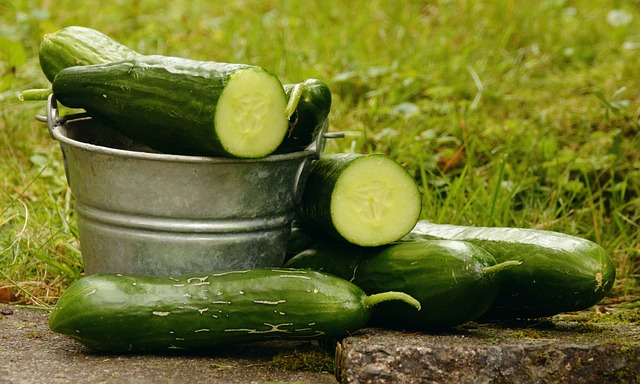
Not to be confused with the standard red or pink colored radishes we are more familiar with, the daikon is a similar hue to a white carrot or parsnip.
The daikon also goes by several other names: Japanese, Chinese or Oriental radish and has a less sharp and more mild taste than its red relative.
The daikon possesses anti-viral and anti-bacterial properties, making it great for maintaining the health of the lungs and respiratory tract. Infections resulting from viruses or bacteria generally result in excessive mucus production, obstructing airways and making breathing more difficult.
Daikon radish juice contains bioflavonoids, antioxidants similar to Vitamin C that reduce the incidence of asthma attacks and boost lung function.
Juice made from dandelion greens promotes bile production, supports gallbladder health and is very high in micro-nutrients. This is a bitter juice (and bitter green juice of any kind is usually great for digestion) so you might want to add a little sweet juice to it to make it more palatable.
Carrot or apple juice are a great option.
The unique flavor of ginger comes from its natural oils, of which gingerol is one.
Gingerol is a key bioactive compound found in ginger and a key player in the benefits of ginger juice. It has been shown to have potent antioxidant and anti-inflammatory effects.
Osteoarthritis is a very common health issue. Degeneration in the joints leads to stiffness and joint pain. One controlled trial of 247 individuals with knee osteoarthritis found that taking ginger extract reduced pain and therefore reduce the amount of pain medication they needed to take.
On account of its antibiotic properties, horseradish juice can help treat UTIs (urinary tract infections).
The German Commission E (Germany's equivalent to the FDA) approved horseradish as an additional treatment to the standard UTI prescription drugs. It is thought that the phytochemicals in horseradish concentrate in urine and thus provide antibiotic effects within the bladder.
Kale juice is one of the healthiest green juices.
According to Ruth Frenchman, RD, an American Dietetic Association spokesperson, kale is the best green vegetable when it comes to antioxidants.
It's a superfood loaded with Vitamins C & K, beta-carotene and much more. It contains more Vitamin C than oranges and spinach.
This powerhouse nutritional juice has all the components needed to give the immune system a serious boost. Hail the kale.

Juicing iceberg lettuce may not be the first thing that comes to mind when we think about green juices, but don't overlook this humble green vegetable.
It's a great source of folate (among other nutrients), a nutrient that is essential for the healthy forming of a baby in the womb and the prevention of birth defects.
Romaine lettuce juice contains a unique blend of amino acids that aid development and growth throughout the body.
The true building blocks in the body, amino acids are essential for creating all cells, whether those cells make up bones, organs, or blood vessels.
Romaine lettuce juice delivers a solid supply of these aminos, such as aspartic acid, lysine, leucine and glutamic acid.
A study that was conducted at the University of Newcastle, found that the often overlooked parsnip has potent anti-inflammatory abilities that help lower the risk of certain cancers.
Falcarinidiol, a phytochemical found abundantly in parsnip juice can destroy cancer cells.
If you want to improve the look of your hair you may benefit from consuming green bell pepper juice.
This juice is a great source of Vitamin C that helps absorb iron into the cells and provide oxygen to cells. This can help limit hair damage such as split ends.
A key phytochemical called capsaicin is a key antioxidant found in the red-colored variation of bell peppers.
Capsaicin plays a role in lowering bad cholesterol levels in the body and reducing inflammation in the arteries.
Red bell pepper juice also contains decent levels of folate and Vitamin B6 which help lower homocysteine levels. Together this helps with reducing the risk of heart disease.
Yellow bell pepper juice is a great source of Niacin, a B vitamin that is essential to the proper functioning of the nervous system and therefore the whole body.
A daily glass of this sweet yellow liquid can be a boost to the health of the brain, nerves and the whole body.
The starch found in potato juice can help with digestive issues, soothe inflammation of the gut and promote healthier digestion. This includes reducing or eliminating the symptoms of indigestion, cramping, bloating and constipation.
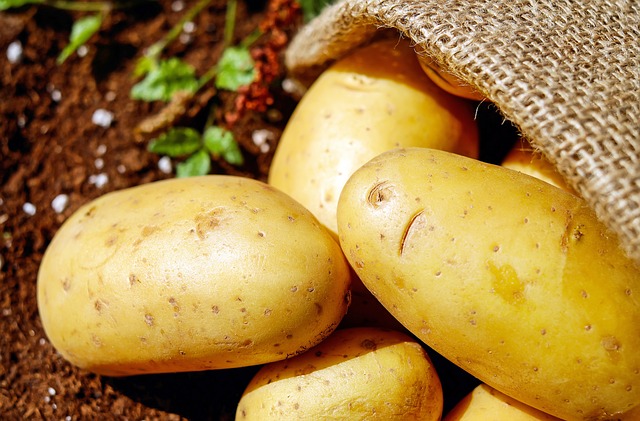
The somewhat spicy radish juice contains antioxidants that bolster the liver and helps clean the blood - thus it can be an aid in the treatment of jaundice. Increasing the amount of oxygen within the blood, radish juice helps reduce red blood cell damage.
For a vegetable, spinach is an exceptionally high source of iron and spinach juice is loaded with iron. Iron is super important in the creation of red blood cells and spinach juice is a great non-animal source of iron to help combat anemia. A bonus benefit is that it can give you the strength to fight off bullies like Brutus. Guguguguh.
The high content of Vitamin A (via beta-carotene) found in sweet potato juice has been shown to help protect against lung conditions such as emphysema.
In particular, lung diseases that result from smoking - first-hand or through passive smoking. Do you smoke or are you around a lot of smokers, a daily sweet potato juice may just be the ticket to reducing the damaging effects of smoke.
The high antioxidant content of swede (a.k.a the Swedish turnip) juice makes this humble vegetable a potent anti-aging food. These antioxidants fight off free radicals that are the prime cause of aging.
Swede juice is also a good source of Vitamin C which is needed for making collagen, the all-important protein for healthy skin.
Tomatoes and their juice have long been associated with better heart health. They possess potent antioxidants like beta-carotene and lycopene that help reduce heart disease factors such as high cholesterol, high blood pressure and fat buildup in the arteries (atherosclerosis).
A study of 584 people found that those with diets rich in tomatoes and their products had a significantly lowered risk of heart disease in comparison to those with minimal tomato intake.
So get that daily dose of tomato juice benefits and you are going a long way to keeping your ticker in shape.
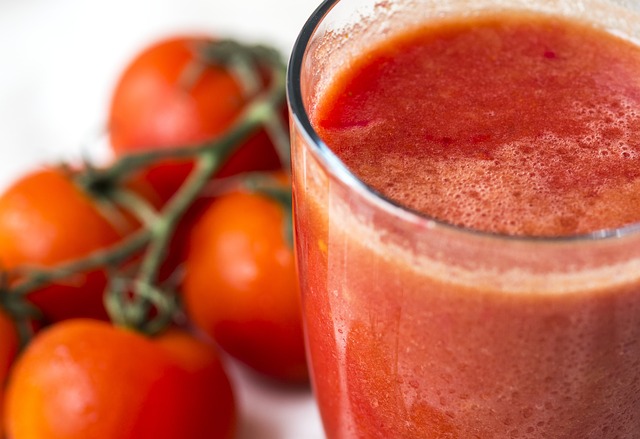
Turnip juice is very effective as a natural way to purify the blood.
It can detoxify the body by removing toxins, waste and heavy metals from the blood due to its content of phytochemicals called glutathione that promotes detoxification in the liver.
So turn up your dosage of turnip juice and feel the benefits of turnip's natural detoxifying effects.
Apple juice is an excellent source of a phytonutrient called phytoestrogen. This helps keep healthy levels of estrogen in the female body and thus regulating reproduction, and menstruation.
Nutritionists suggest including foods high in magnesium and phosphorous to maintain psychological health.
Yes, you guessed it, apricot juice is an excellent source of these 2 nutrients.
Blackberry juice can be considered a beneficial aid for women trying to get pregnant. It contains a plethora of prenatal minerals and vitamins like vitamin C, folate, calcium, magnesium, phosphorous and iron.
Particularly, folate is essential for preventing neural tube defects in unborn children.
Blackberry juice came before and has long outlived the blackberry phone.
Black currant juice has benefits for athletic performance.
Black currant has been shown to improve the circulation of blood in athletes and help recover muscle damage after athletic endeavors.
An article published in the "Journal of Agriculture and Food Chemistry" found that blueberry juice can help improve cognition and memory.
Prevention or slow-down of age-related mental health diseases such as Alzheimer's is likewise considered a possible benefit of drinking blueberry juice.
These benefits are often thought to be the result of the high flavonoid contents of blueberries. Such flavonoids may be particularly effective at improving memory and processing speeds.
People who consume a lot of cantaloupe melon have been shown to have reduced levels of CRP (C-reactive protein) in the bloodstream.
CRP is a marker used widely to assess the levels of inflammation in the body. So if you want to lower the CRP in your bloodstream and reduce inflammation - cantaloupe melon juice may just do the trick.
Gout is one type of arthritis that targets one joint at a time causing swelling, pain and redness. It's a condition that often experiences flare-ups and remission.
Cherry juice has been long touted for its ability to combat the symptoms of gout. One 2012 study of 633 gout sufferers found that those consuming cherries or extract of cherry experienced fewer repeated gout attacks.
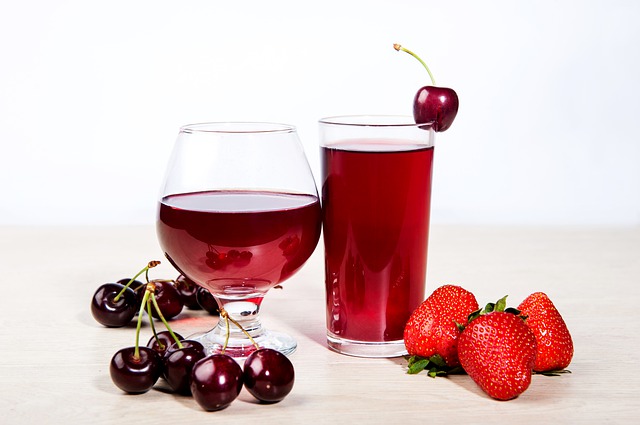
The pectin found in grapefruit (and some other fruits) may help lower cholesterol levels as part of a healthy diet. Some studies have shown that regularly consuming pectin helps lower LDL cholesterol levels.
Pectin is not found in the main flesh of a grapefruit but in the white pith. So make sure some of that white pith goes through your juicer machine along with the flesh.
If grapefruit juice is a little too sharp for your tastes, through a sweet orange through the juicer machine with it.
Grape juice, as well as wine and the fruit itself, are a rich source of resveratrol, an antioxidant that has gained interest for its powerful anticancer abilities.
A study by the Evidence-based Complementary and Alternative Journal has suggested that resveratrol could offer protection from colon cancer.
While more study is needed, resveratrol is considered to be effective protection against skin, hepatic, breast and prostate cancer.
Some preliminary research has shown that eating a lot of guava daily (or drinking its juice) instead of high-in-fat foods for twelve weeks reduces blood pressure in those with high blood pressure.
Electrolytes are something that most of us a familiar with these days. They are important minerals that the body needs to stay hydrated and function properly.
Of course, water is super important too for staying hydrated and this is where honeydew melon juice fits the bill. It's 90% water and contains all the important electrolyte minerals: potassium, sodium, calcium & magnesium.
Consuming vitamin C-rich fruits such as kiwi may provide significant protection from respiratory symptoms with asthma-like wheezing.
One study, published in "Thorax", followed more than 18,000 kids aged 6-7 in Northern and Central Italy and discovered that those children that ate the most kiwifruit and citrus had 44% less incidence of wheezing in comparison to kids that ate the least.
They also experienced less shortness of breath, severe wheezing, nighttime cough, chronic cough and runny nose.
Children with asthma appeared to benefit the most. So if asthma is troubling you, a daily glass of kiwifruit juice may be of benefit to you.
Kumquats - the little citrus fruit - is a great source of vitamin C and calcium. These are both nutrients that are essential for oral health.
Vitamin C is needed to create the collagen that keeps gums strong and free of disease.
Calcium is needed for strong teeth.
Drink kumquat juice daily and you will go a long way to keep your mouth in good shape.
Almost every cold remedy under the sun will have lemon as a key ingredient, even if just as a flavor. Nothing can beat fresh-made lemon juice itself though.
Lemon juice is a powerhouse of antioxidants and the all-important vitamin C, the things you need to fight off a cold.
If you really want a powerful anti-cold remedy add fresh ginger juice and a teaspoon of honey to the lemon juice and you got a powerful immune-boosting juice.
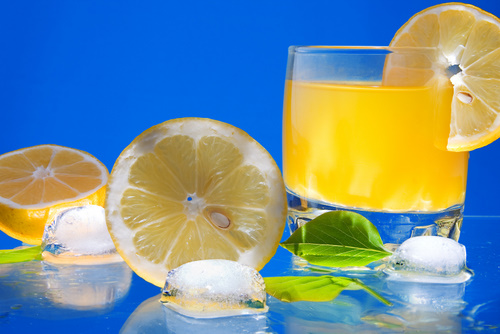
Lime juice contains active compounds called flavonol glycosides that don't just offer anticancer benefits but have antibiotic properties too.
This antibiotic ability of lime juice has been shown to help protect against contracting cholera. An article published in the "Tropical Medicine and International Health" revealed that consuming lime juice with main meals helped protect participants against cholera.
A 2013 review that was published in "Evidence-Based Complementary and Alternative Medicine" revealed the blood-glucose-lowering abilities of lychee seed extract.
Also, the polyphenol oligonol compounds found in the flesh of this fruit may help with diabetic-related vascular issues.
Turn that flesh into juice and enjoy anti-diabetic benefits.
Mandarin orange juice can reduce the risk of liver cancer according to the RxPG News site.
A study published in the Archives of Biochemistry and Biophysics found that participants with chronic viral hepatitis that drank mandarin juice lowered their risk of liver cancer.
Those who didn't drink the juice had a 8.9% rate of liver cancer, and those who did had no signs of liver cancer.
Not all fruit juices are non-acidic but mango juice is actually naturally alkaline with a pH greater than 7. If you suffer from acid reflux, mango juice may help to put that fire out.
Hypo-ka-what-now? Hypokalemia is a medical term for potassium deficiency.
Potassium deficiency can lead to muscular degradation and cardiac arrhythmia. There is something also called the "low potassium heart attack".
Don't like the sound of any of that, then a daily glass of potassium-rich nectarine juice will make sure you're getting a good dose of this essential mineral. Besides, nectarine juice just tastes so great.
The first thing most of us think of when we think about the benefits of orange juice is its vitamin C content, and of course, its high vitamin C content is a star benefit for this juice.
However, several studies have shown that regular orange juice intake may help reduce our risk of developing kidney stones.
Orange juice increases the pH of urine to make it more alkaline and a more alkaline environment reduces the risk of kidney stones.
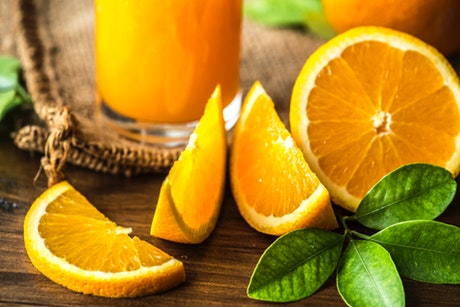
Consuming peach juice before retiring for the night can induce a sedative effect, invoking drowsiness and helping you drift into a good night's sleep.
Scientists believe that fresh peach juice helps regulate sleep cycles courtesy of its sedative abilities.
Specific minerals and enzymes at play in peach juice play an important role in balancing out sleep hormones, they induce tranquil effects on the brain and pacify anxiety.
Pear juice is known for its colon cleansing properties and anti-inflammatory abilities while improving the balance of healthy gut bacteria. This helps with high acidity, constipation, diarrhea and bloating.
These combined benefits improve our overall digestive process and thus increase the uptake of nutrition from the food we consume.
Pineapple juice contains numerous beneficial nutrients including vitamin C, beta-carotene, zinc, copper and folate. Together these nutrients work in synergy to help boost fertility in both guys and gals.
Plums are a veritable feast of antioxidants that provide potent anti-cancer and anti-inflammatory benefits but plum juice is also a good natural aid for constipation.
While plum juice is less concentrated than the famous constipation-combating prune juice, the former possesses similar laxative abilities.
Plum juice is a great source of sorbitol and isatin that studies have shown to be more effective for treating constipation than psyllium husks.
Several studies have been conducted on the benefits of prickly pear for cardiovascular health.
People given daily doses of this desert-born fruit found reductions in their LDL cholesterol and overall cholesterol levels.
Reduced platelet proteins was also another benefit.
A daily cup of prickly pair juice may be a good way to help a healthy flow of blood through the body.
Raspberry juice can help regulate insulin levels in the body.
Raspberries are pretty low-carb and loaded with juice-soluble fiber.
Although to be honest, as a diabetic you would probably be better off eating the berry itself to benefit from even more fiber.
Strawberries (and blueberries) have both been found in a study to slow down cognitive decline.
The conclusion is that a higher intake of flavonoids, especially from berries, appears to reduce the rate of cognitive decline in older adults.
There are myriad other benefits to drinking strawberry juice on a regular basis too. Enjoy.
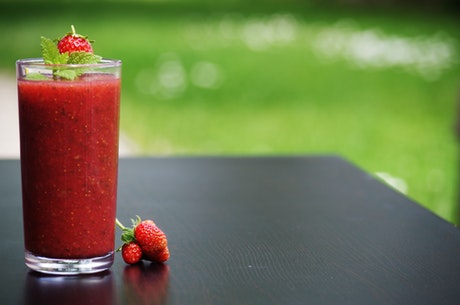
Tangerine juice is a good source of pectin (a type of fiber that actually makes it to the juice and is not thrown away in the pulp).
Pectin has been shown to restrict the absorption of cholesterol within the gut and therefore helps to keep overall cholesterol levels down.
A glass of daily tangerine juice can be a great aid to overall heart health and wellness
Lycopene is a type of antioxidant called a carotenoid, similar to beta-carotene that gives carrots their orange glow.
However, unlike beta-carotene which can be converted into vitamin A, lycopene maintains its status as, well, lycopene.
Lycopene is also what gives watermelon (and tomatoes) their red color. It has been shown to possess numerous health benefits that are often found with potent antioxidants, including anti-cancer and anti-inflammatory benefits.
It's easy to get your daily dose of Vitamin A by drinking vegetable juices. Technically it's beta-carotene that we are getting in our juices, which is then turned into vitamin A in the body. Actual vitamin A is only sourced through animal products, particularly dairy.
Carrots are an excellent source of beta-carotene and it is actually beta-carotene that gives carrots their orange color. Thus other orange-colored fruits and vegetables will also be a source of this antioxidant carotenoid.
Dark leafy greens such as spinach and kale are also excellent sources of beta-carotene. So why are they green in color and not orange? Good question! It's because they are also loaded with chlorophyll which provides the green color in plants. This is why in autumn tree leaves start to turn orange, the chlorophyll content dies off and the orange beta-carotene becomes visible.
Vitamin A has numerous important uses including eye health, heart health and as a key member of the immune system.
So a carrot juice mixed with some dark leafy greens is going to give you a mega dose of beta-carotene (thus vitamin A) and a whole lot more.
Possibly the most well-known of all the nutrients, vitamin C is a key antioxidant of the immune system and essential for protecting us against viruses and bacteria. It is also essential for making collagen and is thus important for skin, hair and gum health.
All fruits, especially citrus fruits and kiwifruits are a great source of vitamin C. Leafy green vegetables such as kale and spinach are also good sources of this important vitamin.
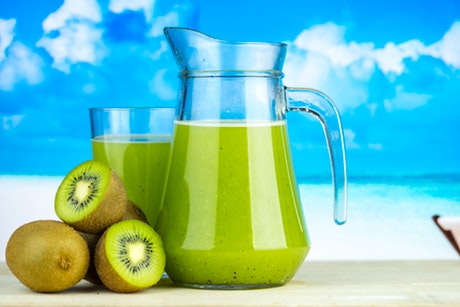
Like vitamin C, vitamin E is another nutrient that builds the foundation of our immune system.
Vitamin C is water soluble while vitamin is fat soluble thus their antioxidant properties are active in different types of cells.
Some juices that are great sources of vitamin E include mango juice, red bell pepper juice, kiwifruit juice & turnip greens.
Vitamin K is key to healthy blood clotting and thus repair of cuts and bruises.
If we are deficient in this vitamin we may have a hard time recovering from bumps, cuts, scrapes and bruises - well basically anything that makes us bleed externally or internally.
Fortunately, vitamin K is found abundantly in dark leafy greens, vegetables that should be the cornerstone of our juicing regimes anyhow. Kale, mustard greens, swiss chard, collard greens and spinach are all great choices.
While dairy products such as milk and yogurt are great sources of calcium we can also get this essential mineral from plant sources.
Again, our dark leafy greens kale and collard greens come to the rescue and are great sources of calcium.
Note that even though spinach also has high calcium content, it also contains oxalates which inhibit the absorption of calcium into the bloodstream. Kale and collard greens are low-oxalate greens, however, so they are good choices.
If you are not feeling like a Lion in Zion then you may need a little more iron in your diet.
Iron is essential for building a healthy supply of red blood cells in the body and thus critical to overall well-being.
Low dietary iron content is a key cause of anemia.
Gram for gram, veggies typically have higher iron content than foods usually associated with good iron content, such as eggs and meat.
However, vegetables contain a type of iron called non-heme iron, which is less easily absorbed. Not to worry though, vegetables also contain vitamin C which enhances iron absorption.
Dark leafy greens, kale, spinach, swiss chard and collard greens are all great sources of iron.
Potassium is an essential mineral that supports blood pressure, bone strength, cardiovascular health and muscle function.
Potassium deficiency can lead to unhealthy blood pressure levels, heart issues and muscle cramps and spasms.
Potassium is found in many fruits and vegetables in high quantities and thus a daily juice of these select fruits and veggies can provide us with part or all of our daily requirements of this mineral. Top choices include tomato juice, cantaloupe melon juice, cucumber juice and leafy green veggie juices.
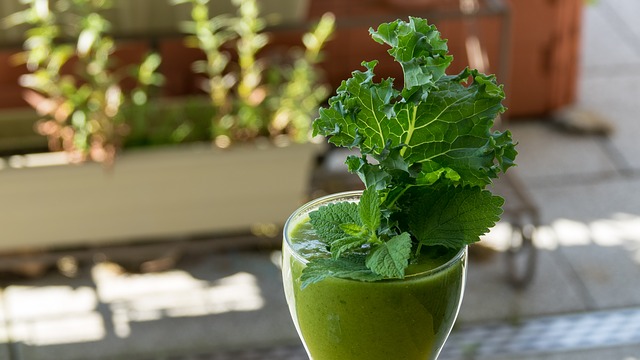
Phosphorus is the 2nd most abundant mineral in the body, second to calcium.
Phosphorus is needed for a multitude of functions including tissue and cell repair and filtering waste.
Generally speaking (and probably why we don't hear too much about this mineral) people are not deficient in this mineral and it's more common for people to have too much of this mineral than in their system. That said, certain health conditions like alcoholism and diabetes and certain medications can deplete phosphorus levels.
Fruits and vegetables are not really good sources of phosphorus, we will need to turn our attention to the juice of nuts. Most nuts are good sources of phosphorus.
With a quality masticating juicer you can make nut juice at home but it will be easier (and probably cheaper) to just buy a quality organic nut milk at the store.
Magnesium plays a part in over 300 enzymatic reactions, including food metabolism, fatty acid and protein synthesis, and the transmission of nerve impulses.
To make sure you are getting enough of this mineral you will need to add some of the least pleasant tasting green juices to your juice recipes: broccoli, asparagus, Brussel sprouts and cabbage. Mix these juices with carrot juice or apple juice to make them way more palatable.
Manganese is a trace mineral that we need in small quantities. It is required for the healthy functioning of the brain and nervous system and many of the enzymatic processes in the body.
Our bodies store about 20mg of manganese in the liver, pancreas, kidneys and bones but we need it from our diets too.
To get more of this essential mineral in your diet choose juices made from pineapple, acai and dark leafy greens.
Load up on the zinc and don't let your health sink.
Zinc is often paired with Vitamin C in cold-combating natural remedies and supplements. It's a key mineral in many enzymatic possesses in the body, some of which are key to a healthy immune system.
Zinc, like Phosphorus, is not generally found in high quantities in fruits and veggies but nuts are a good source, particularly cashews. You will need a quality masticating juicer and a lot of patience to make your own cashew milk at home. Alternatively, get a high-quality cashew milk drink from the store.
We can't list all these benefits without talking a little more about carotenoids, a group of powerful antioxidants found in most fruits and vegetables to some degree or another.
So what are they? Carotenoids are plant pigments that provide the red, orange and yellow hues in fruits and veggies. They have important antioxidant functions of deactivating free radicals - singular oxygen atoms that damage cells when they react with and destabilize other atoms.
Many studies have been conducted on the effects of carotenoids and they are shown to help us in the way many antioxidants do. Protection against cancer, improving the immune system, bolstering cardiovascular and heart health, protecting the lungs, brain and eyes from disease and the list goes on.
To get the benefits of these amazing carotenoids is pretty simple, they are in pretty much any vegetable you juice and in a variety of fruits too.
If you mix up your juicing will you will certainly be getting a plethora and variety of carotenoids in your diet and reaping their protective qualities.
To get the best health benefits of juicing we should really focus our juicing on green juices and particularly leafy green juices. There are several reasons for this:
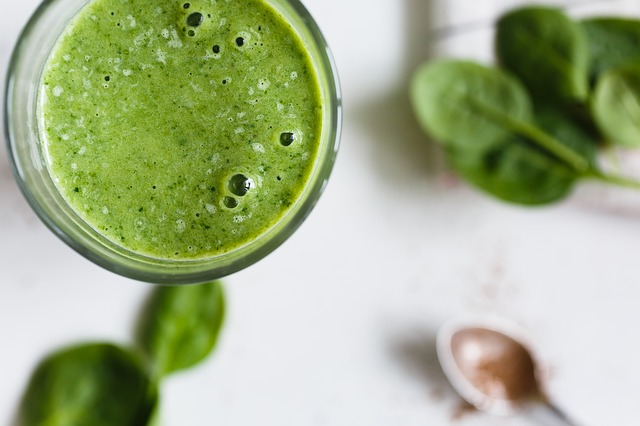
In reality, there is only one downside to drinking dark green leafy vegetables, they don't taste great. Add the juice of a couple of carrots to the mixture and it will go a long way to making the green juices tastier!
Click here to check out our recipes for other ideas.